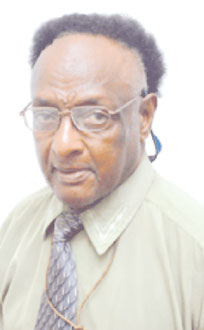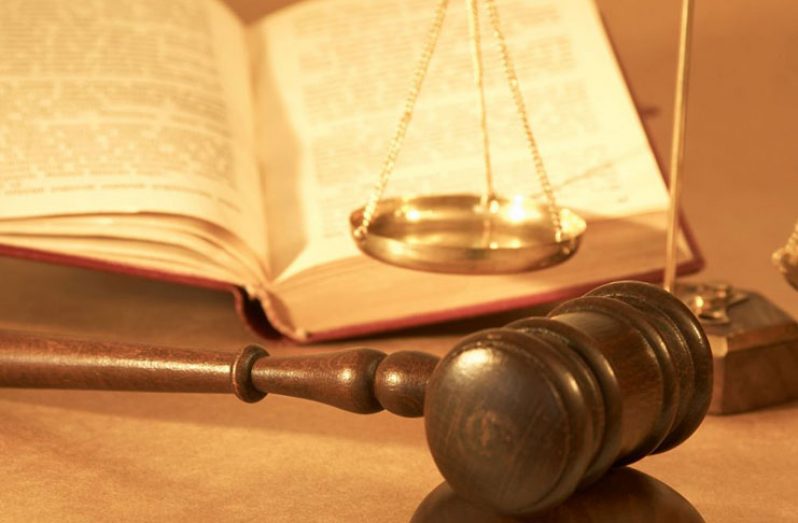IN 1962 Customs Guard Perez, without authority, collected from Kisson Singh a payment of

duty on certain articles.
He thereafter handed over the money to the respondent , an officer of Customs & Excise, whose duty it was to collect such money but who had been absent when payment was made to the Custom’s Guard.
The Respondent failed to pay over the money into revenue and was convicted of the offence of embezzlement by a public officer – the case having been tried summarily by consent .
The conviction and sentence were set aside on an appeal to the Full Court but were restored on appeal to the British Caribbean Court of Appeal.
After noting that the Full Court fell into error that court allowed the appeal by the prosecution and granted costs to the appellant for the Appellate Court and the Full Court.
It was held that it was not part of the duties of the Customs Guard to receive the money and that when he paid it over to the respondent this did not make the receipt by the latter a receipt of money , entrusted to him by virtue of his employment .
On appeal by the prosecution.
Held: although this customs guard was not authorised to receive the payment , K.S’s intention was that the money should be paid into revenue and his intention was carried out when the customs guard paid it over to the respondent who admittedly was authorised to receive it on behalf of the Government. At the moment the property in the money passed to the Government and in failing to hand over to the Government the respondent was guilty of embezzlement. Appeal allowed.
E. A. Romao, Senior Crown Counsel, for the appellant.
A. S. Manraj for the respondent.
The British Caribbean Court of Appeal, was constituted by Justices of Appeal Gomes, Lewis and Jackson.
Delivering the judgment Justice of Appeal Gomes said: This is the judgment of the court. This appeal raises a question of law. The facts are not in dispute. But they may be stated very briefly for the purposes of the appeal. They are these:
A man by the name of Kissoon Singh arrived as a passenger at a port of entry bringing with him some gifts. The Customs duty on the gifts was assessed in the sum of $10. At the moment the respondent , the customs officer who is authorised to assess and receive customs duty , was absent but a customs guard by the name of Perez was holding on for him in his absence. The sum of $10 was paid by Kissoon Singh by way of customs duty to the customs guard Perez.
It was admitted that Perez was not a person authorised to assess or collect customs duty . He had, however, in the absence of the authorised office received the amount and he gave a provisional receipt therefor to Kissoon Singh. Later on when the customs officer arrived, Perez paid over the $10 to him in order that It might be paid in to the proper destination, that is to say, paid into revenue.
The respondent having failed to bring the matter to account into revenue was charged with embezzlement. He was convicted by the magistrate for the offence and fined. He appealed to the Full Court and the Full Court after hearing arguments, allowed the appeal and quashed the conviction. (1962 L.R.B.G. 331).
From that decision of the Full Court the Crown has appealed to this court. Giving the reasons for decision the Full Court inter alia stated :
“The question for consideration is whether the appellant’ by failing to pay to his employers, the colony of British Guiana, the sum of $10 given him by Perez is guilty of the offence of embezzlement by a public officer. In so far as Perez is concerned he was employed as a customs guard and it was no part of his duties as a customs guard to receive moneys or give receipts therefor. It was the duty of the appellant to collect moneys paid as duty on articles coming into the colony. Perez might be a bailee of the money received from Kissoon Singh and would hold the money
In trust for him but he would not have been entrusted with the money as a public officer within the meaning of s. 191 of the Ordinance. The money would still be the property of Kissoon Singh and not that of the Government of British Guiana. Perez would not have been entrusted with the money byvirtue of his employment as a customs guard even though the appellant may have asked him to receive such moneys”
Continuing his judgment Justice of Appeal Gomes added: If we may say so with respect we agree entirely with that part of the judgment of the Full Court. That court, however went on to say that –
“the fact that Perez paid over the money to the appellant does not make the receipt
a receipt of money entrusted to the appellant (who is now respondent) by virtue of his employment.”
This court does not agree with that view. When the money was paid by Kissoon Singh, it was paid with the intention that it should be paid into the revenue as customs duty.
Although the payment to Perez was ineffective as he was not an authorised officer to receive it , Kissoon Singh’s intention was carried out when Perez paid it over to the respondent who admittedly received it in his capacity as customs officer and as a person authorised to receive it on behalf of the Government. At that moment the property in the money passed to the Government.
This is where we consider the Full Court fell into error for when Perez paid over the money he performed that which he undertook to do when he became the bailee of Kissoon Singh, from whom he received the money.
The respondent in this court failed to pay over the money and thereby intercepted it before it came into the possession of his employer. In such circumstances we consider him guilty of embezzlement.
For these reasons the appeal is allowed and the Order of the Full Court is set aside and the conviction and sentence restored.
The court considers that the appellant is entitled to costs. The appellant will therefore have the costs in this appeal and of the Full Court.
Appeal allowed.


.jpg)











